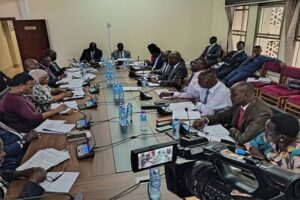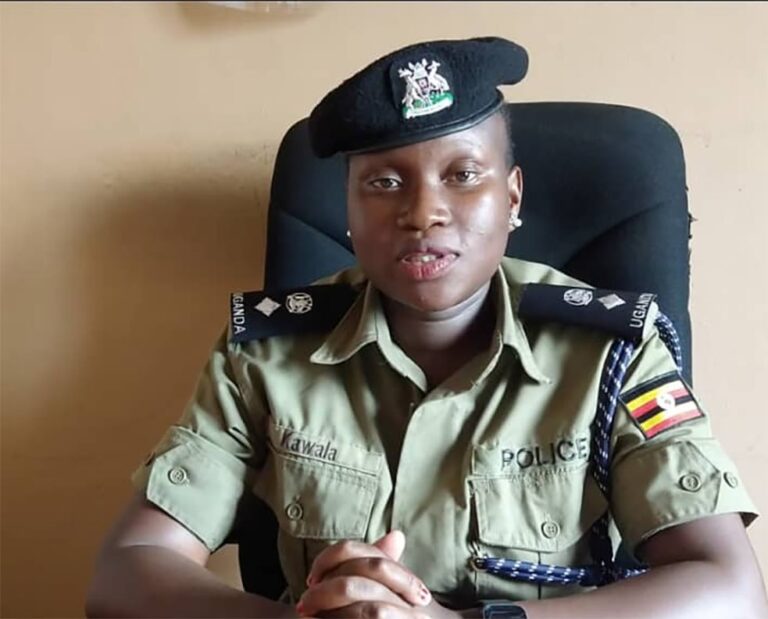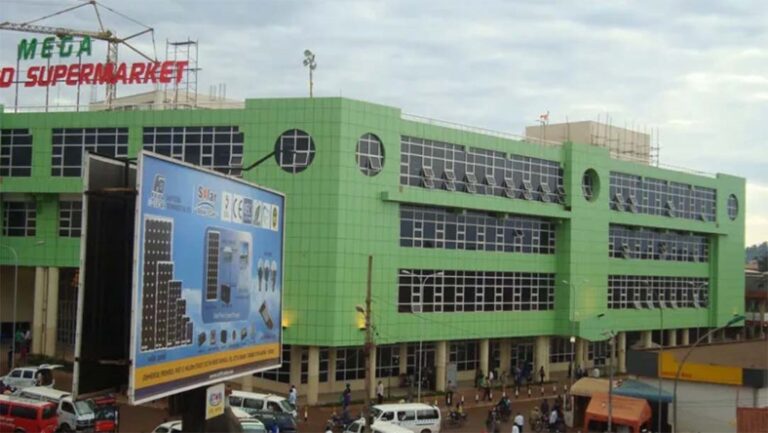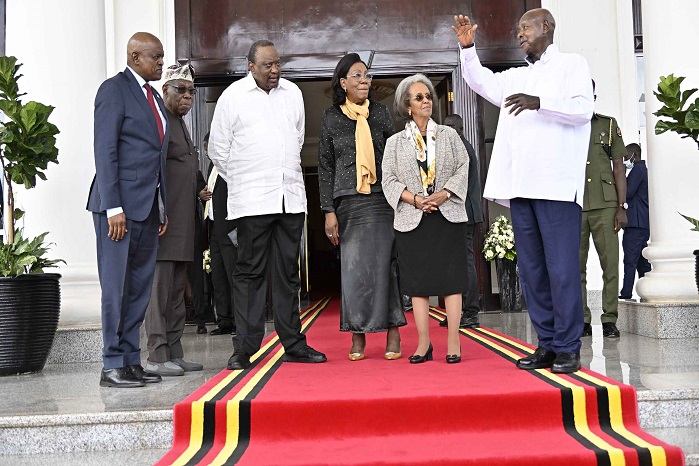
EC Commissioners before the Committee on Legal and Parliamentary Affairs recently
HABARI DAILY I Kampala, Uganda I Holding a successful general election requires finances and MPs have risen up to the call following the revelation that critical under funding dogs the electoral body.
Justice Simon Byabakama, the Electoral Commission (EC) Chairperson said whereas the upcoming financial year is critical, since it represents the final phase of implementing the General Elections Roadmap, a huge funding gap may derail it.
“The Commission has been allocated Sh140.8 billion for the financial year, yet our total requirement is Sh764.7 billion. This shortfall severely hampers our ability to execute our mandate as stipulated under Article 61 of the Constitution,” he explained.
He made the revelation while presenting the Budget Framework Paper for the Financial Year 2025/26 to the Committee on Legal and Parliamentary Affairs on Friday, 17 January 2025.
Byabakama said in order for the EC to organise a successful election, it requires up to sh700b, adding that their work as also been hampered by delays in funding for ongoing projects, such as the construction of regional offices and the wage enhancement for staff.
“Some of our critical activities remain unfunded. These include voter education campaigns, production of ballot papers, and the recruitment and training of polling officials,” he said, cautioning Government he authorities that these gaps could undermine the EC’s ability to deliver on its constitutional obligations.
Justice Byabakama further revealed that the Commission requires Sh450.2 billion for Phase III of the General Elections Roadmap, which covers polling day activities and the tallying of results. Despite its significance, no provision has been made for this phase.
He noted that polling is scheduled to take place between 12 January and 9 February 2026.

EC officials facing members of the Committee on Legal and Parliamentary Affairs recently
Among the EC’s proposed activities is the nomination of presidential candidates, slated to take place at the Commission’s planned new headquarters in Lubowa.
The chairperson highlighted the importance of the new facility in reducing costs associated with hiring venues for critical election events, including the declaration of results. However, the Shs62 billion required to complete the Lubowa project remains unfunded.
He said construction of our headquarters in Lubowa is not just a priority but a necessity. This project will provide a suitable environment for the nomination of presidential candidates and the declaration of election results.
Wage bill
The Commission’s report also highlighted its achievements, including the demarcation of electoral areas and the reorganisation of polling stations.
In addition to the salary enhancements, the EC is seeking Shs1.66 billion to fund wages for returning officers in 10 newly created cities and Terego district.
These areas have not been operationalised due to the lack of funds for staff salaries.
Byabakama highlighted the urgency of this funding, noting that the law requires every district to have a returning officer and an assistant returning officer, especially during general elections.
He emphasised that the salary enhancement was initially approved by Parliament in 2017, with the final installment due in the 2019/2020 financial year. However, the payment remains unsettled, leading to growing frustration among staff.
“The third and final installment of the staff enhancement, which was enhanced by this Parliament in 2017 and the last instalment was due in the 2019/2020 financial year amounting to Shs10.463 billion, hasn’t been honoured to date. This has created a lot of anxiety among our staff,” said Byabakama.
In his response to the EC’ submission, Abdu Katuntu, the Bugweri County MP questioned EC’s huge budget and cautioned not to associate itself into activities that put the institution in disrepute.
Patrick Nsanja, the Ntenjeru County South MP equally questioned the independence of the EC especially since they involve security apparatus like District Internal Security Officers (DISO) and Gombola Internal Security Officer (GISO) during the elections.




